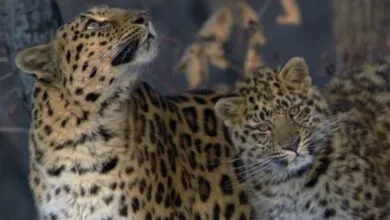Fastest Animals in the World: 10 Speedsters of Land, Sea and Air
Hold on to your hats and equip yourself for a whirlwind journey as we’re going to unfold the top 10 fastest animals in the world. Every contender, in this race of speed, is a marvel of evolution, each with an unparalleled adaptation that let it zip through its habitat with striking velocity. From sky-diving raptors to sprinting felines and darting fish, set the stage for meeting the elite athletes of the animal kingdom. Without further ado, let’s spotlight top 10 fastest animals in the world!
1. Peregrine Falcon
Top Speed: 240 mph (386 km/h)
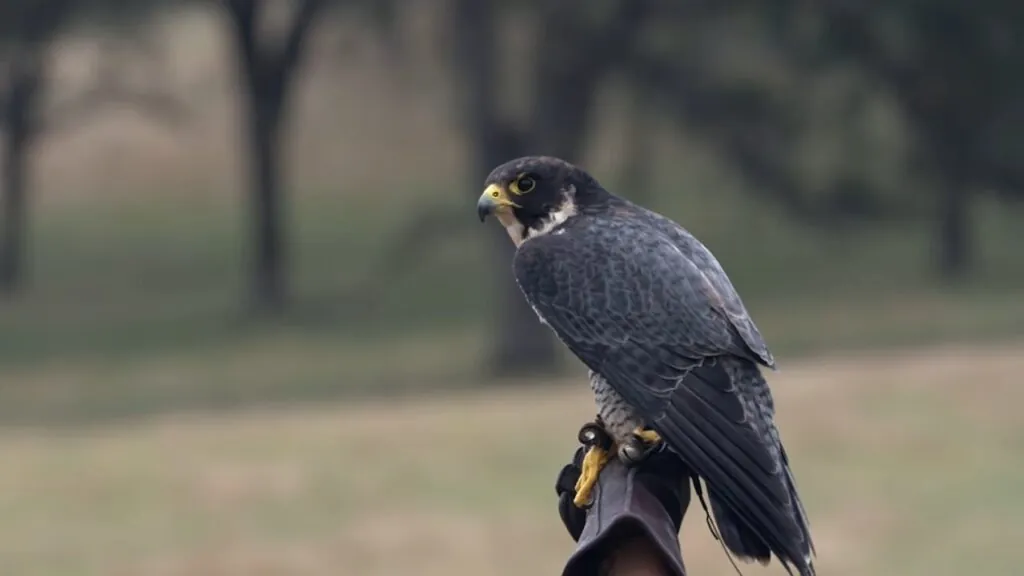
Peregrine Falcon, the speed demon of avian world, reigns supreme with stoops documented at over 240 mph (386 km/h), making it not just the fasted bird in the world but the fastest member of the animal kingdom. Falcons, with a projected global population of about 140,000 mature individuals, have a wide habitat range, encompassing arctic tundras and tropical rainforests.
In conjunction with the lifespan of peregrine falcon, in the wild it’s about 13 years, albeit some have been known to live up to 20 years. As per the IUCN Red List, the species is classified as Least Concern. On the related note, got the scoop of the difference between hawk and falcon!
2. Golden Eagle
Top Speed: 200 mph (322 km/h in a dive)
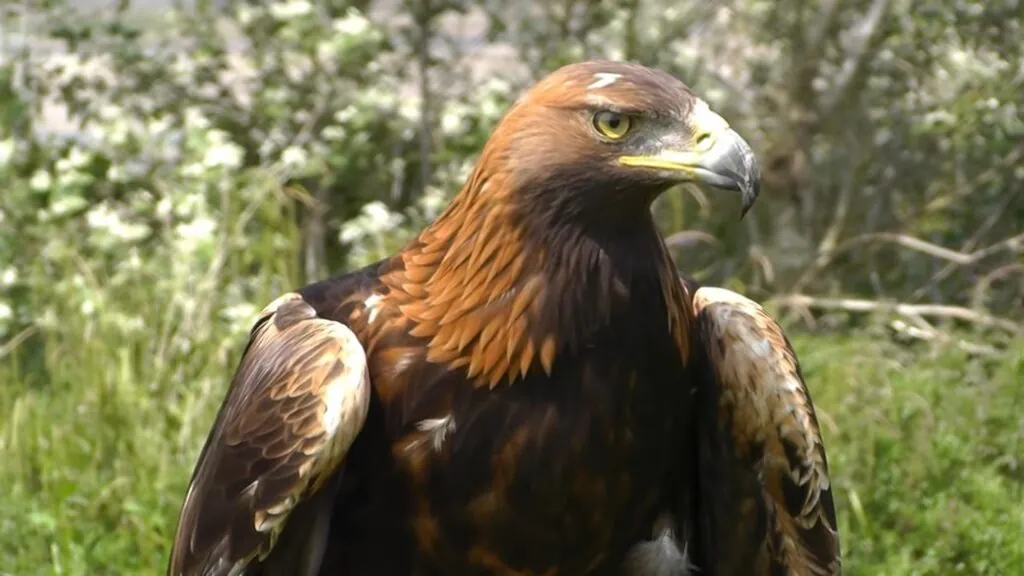
The majestic golden eagle, an amblem of power and grace, commands the skies with astonishing fight speeds that exceed 200 mph (322 km/h in a dive). With an approximated global population of around 300,000 individuals, these raptors claim a stretched geographical range, ranging from North America to Eurasia. Open and semi-open regions such as high mountains and tundra which allow them to utilize updrafts for their high-speed aerial maneuvers are their preferred habitats.
With respect to the lifespan of golden eagle – one of the fastest flying birds, it can be up to 30 years in the wild – a testament to their mastery of their environment. The conservation status of golden eagle is Least Concern, as per IUCN Red List. Don’t confuse it with the bald eagle, the emblematic Bird of the USA.
3. Mexican Free-tailed Bat
Top Speed: 99 mph (160 km/h in a dive)
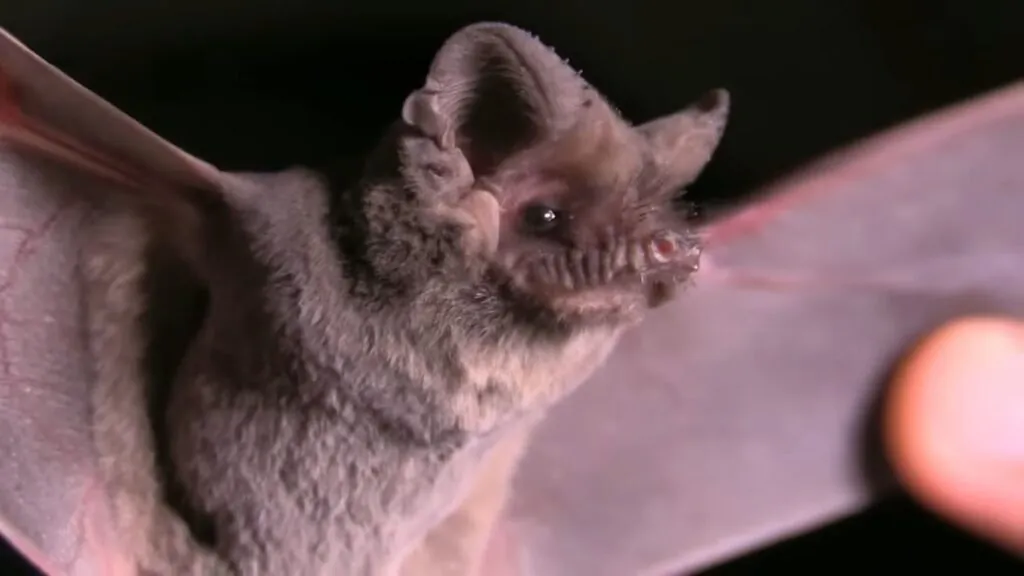
With its capacity to reach a soaring speed of up to 99 mph (160 km/h in a dive), the Mexican free-tailed bat is not only an extraordinary member of the mammalian league but also a standout in the animal kingdom’s speed hierarchy. It enjoys a sizable and stable population, estimated to be between 120 and 150 million, which festoons the skies from the southern reaches of the U.S. through to Mexico, stretching down to Central America and even touching parts of South America.
When it comes to the habitat of Mexican free-tailed bat, they prefer urban areas and woodlands, with a pronounced prioritization for cave roosts, nonetheless they willingly adapt to man-made structures as well. These bats, typically, experience a lifespan ranging from 5 to 7 years in their natural environments. The animal is currently listed under the Least Concern category by the IUCN.
4. Frigatebird
Top Speed: 95 mph (153 km/h)
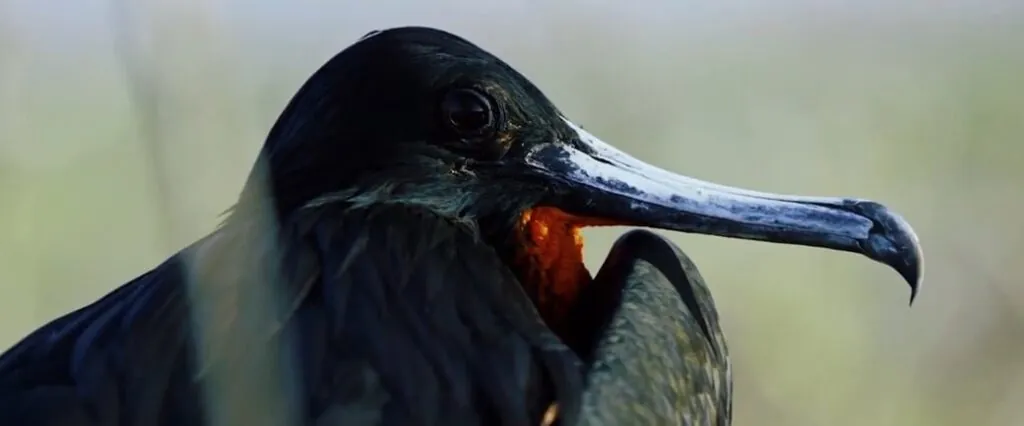
Frigatebird having an awe-inspiring wingspan and masterful control of the wind, is renowned for its speed that reaches up to 95 mph (153 km/h). In relation to frigatebird’s population (adult), it’s approximated to be between 1,800 and 3,600 pairs. It soars over tropical and subtropical waters of the Pacific and Indian Oceans, as well as the Atlantic, including the Galápagos Islands.
With respect to the lifespan of frigatebird, it’s the potential to raom the skies for up to 35 years. The conservation status of this species, as assessed by the IUCN, is species-dependent but typically falls under Least Concern.
5. Black Marlin
Top Speed: 82 mph (132 km/h)
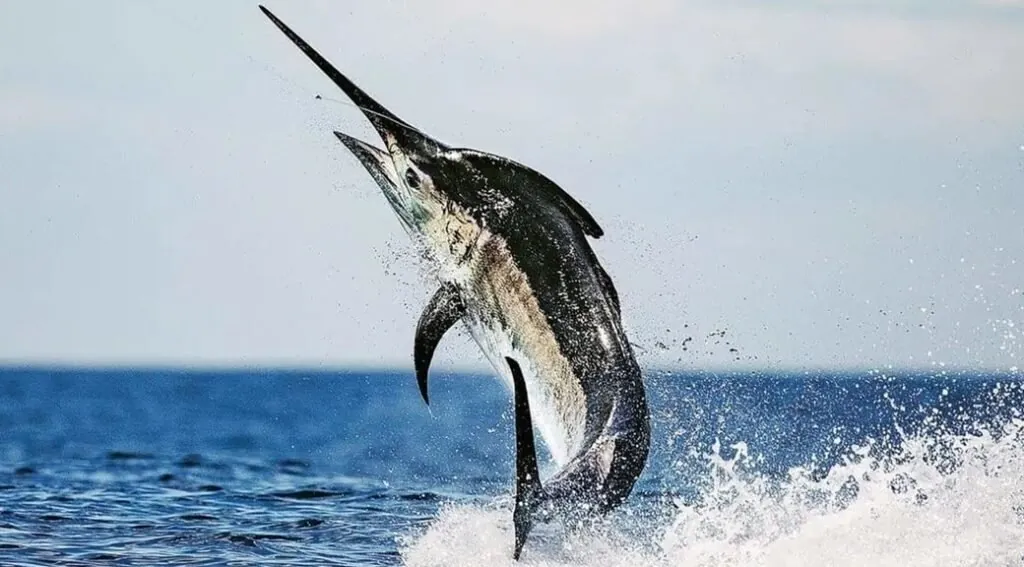
Black marlin, the fastest fish in the world, cuts through the oceans currents at awe-inspiring speeds, reaching up to 82 mph (132 km/h). These creatures are widely distributed in the tropical and subtropical waters of the Indian and Pacific Oceans. Nearshore water, including coral atolls and reef ledges are the places these predators are typically found in.
The lifespan of a black marlin can extend to around 10 years, within which they grow rapidly and can reach the length of over 15 feet. In conjunction with the conservation status of black marlin, as per the IUCN Red List, the fish is classified as Data Deficient.
6. Sailfish
Top Speed: 68 mph (110 km/h)
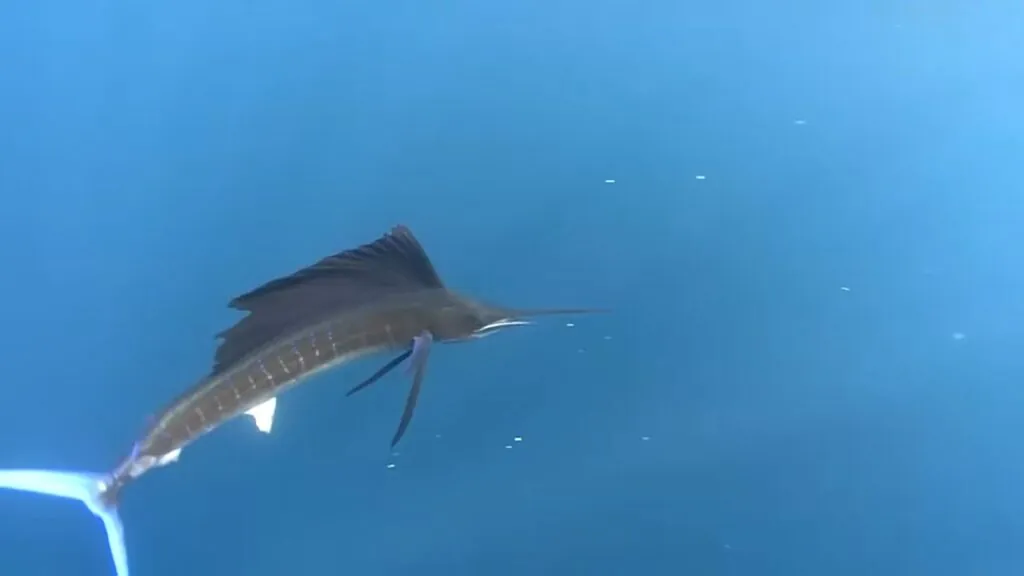
Sailfish, distinguished by its indigo to cobalt hues and a sail-like dorsal fin, is documented to be among the fastest fish in the ocean, reaching a peak speed of 68 miles per hour. These fish inhabit the temperate and tropical waters of both the Atlantic and the Indo-Pacific oceans, with a bent to stay in the warmer upper layers of the ocean.
Sailfish, one of the fastest animals in the world, can grow to remarkable sizes, with the largest individuals measuring over 10 feet in length and weighing up to 200 pounds. Living an average of 4 years, these fish typically have a short lifespan. In terms of their conservation status, the species is categorized as Least Concern by IUCN.
7. Cheetah
Top Speed: 75 mph (120 km/h)
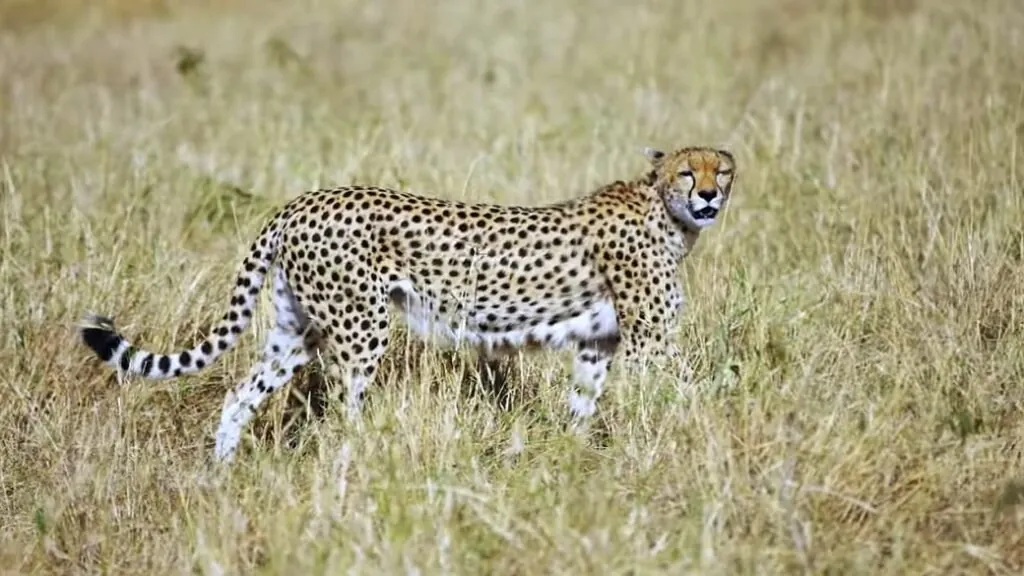
Cheetah, maintaining the first place on in terms of the top 10 fastest animals on land, is capable of accelerating to an unparalleled 75 mph (120 km/h) in just a few seconds. Current projections suggest there’re approximately 6,674 adult cheetahs left in the wild, predominantly swelling in sub-Saharan Africa, with a small, critically endangered population in Iran.
Typically, cheetahs – fastest animals in the world – have a lifespan of 10 to 12 years in the wild, albeit in captivity, they can reach up to 20 years. Males normally grow larger than females and can weigh between 77 to 143 pounds, with a body length of up to 4.5 feet, not including the tail. As per the IUCN, cheetah is typified as Vulnerable with their population encountering a continuing decline due to habitat loss, poaching and conflict with humans.
8. Pronghorn Antelope
Top Speed: 55 mph (88 km/h)
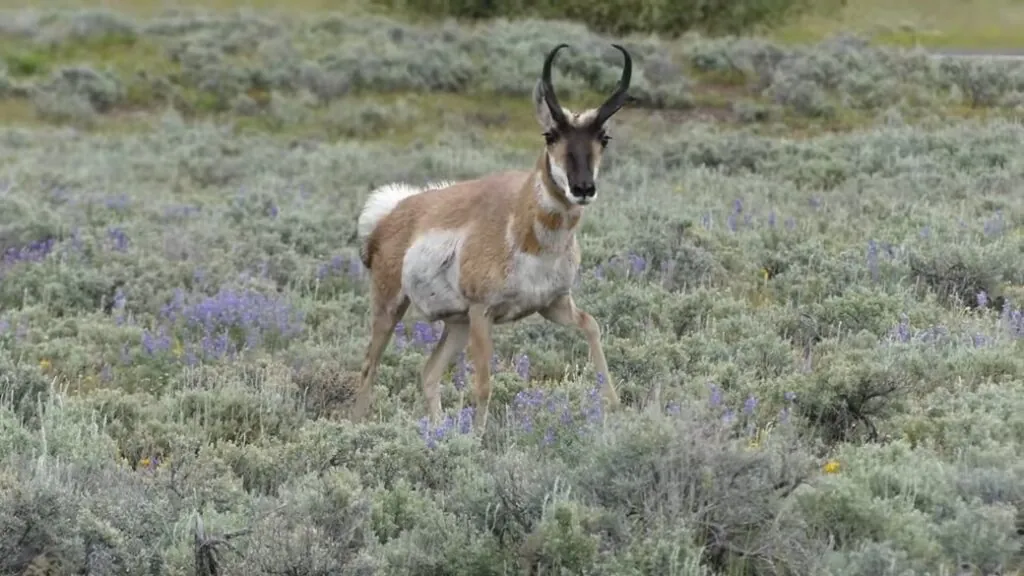
Pronghorn antelope, renowned for its amazing endurance and speed, is the second fastest animal on land, capable of hitting speeds up to 55 mph (88 km/h). With an approximated population size of around 700,000 to 1,000,000 individuals, these animals are found chiefly in North America, with the range extending from southern Canada through the western United States to northern Mexico.
In conjunction with the habitat of pronghorn antelope, they reside in open grasslands, deserts and shrublands, where their speed is an evolutionary adaptation to escape predators. The average lifespan of a pronghorn in the wild is between 10 and 15 years, with adult males normally weighing between 90 and 130 pounds. These species are listed as Least Concern as per IUCN Red List.
9. Springbok
Top Speed: 55 mph (88 km/h)
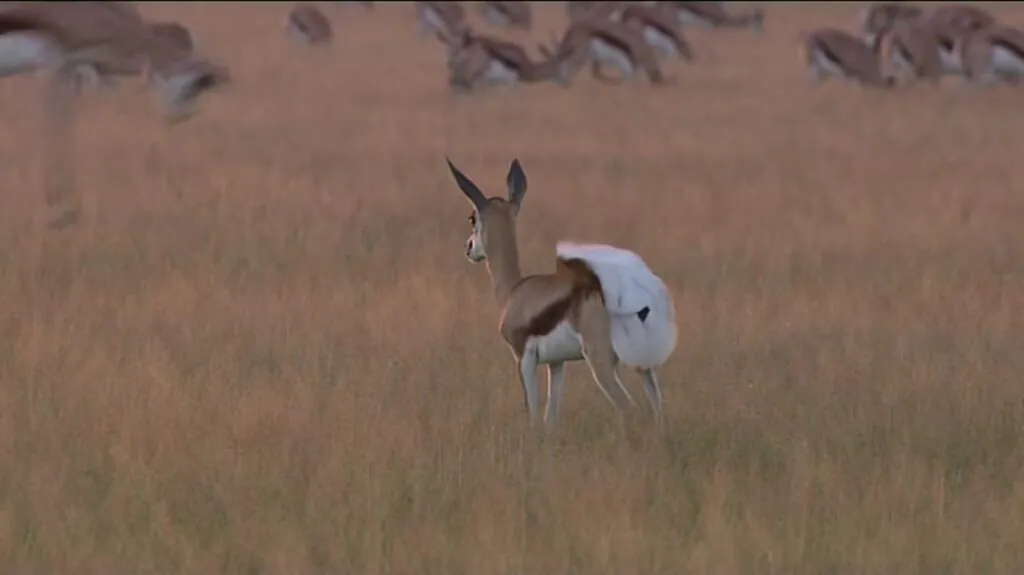
Springbok, a symbol of agility and speed, outshines with its ability to sprint at velocities of up to 55 mph (88 km/h). These medium-sized antelopes, with estimates ranging well over 2 million individuals, boast a healthy and robust population. Springboks, listed among the fastest animals in the world, are indigenous to the southern African regions, predominantly flourishing in the savannah and grasslands of Namibia, Angola, Botswana and South Africa.
With reference to lifespan, springboks can live up to 10 years in the wild. When it comes to the weight of springboks, it’s between 55 and 100 pounds. The most distinctive feature they’ve is their brown and white coloring, with a dark stripe running along the side of their bodies. According to IUCN Red List, the species are Least Concern.
10. Quarter Horse
Top Speed: 55 mph (88 km/h)

American quarter horse, standing on 10th place among the fastest animals in the world, with its top speeds up to 55 mph (88 km/h) particularly in short distances, is on the 10th position when it comes to the top 10 fastest animals in the world. This breed is among the most popular in the U.S., with the American Quarter Horse Association (AQHA) registering around 3 million active horses.
These horses are bred for their performance in quarter-mile races, hence their name; they showcase significant muscular development, a compact body and a broad chest, allowing for rapid acceleration. With respect to the lifespan of American quarter horse, it’s about 25 to 35 years, contingent on their health, workload and living conditions. I
In conjunction with American quarter horse size, they stand roughly 14.3 to 16 hands (a hand being 4 inches) and an adult can weigh between 950 to 1,200 pounds. In terms of conservation status, they’re not considered at risk.



